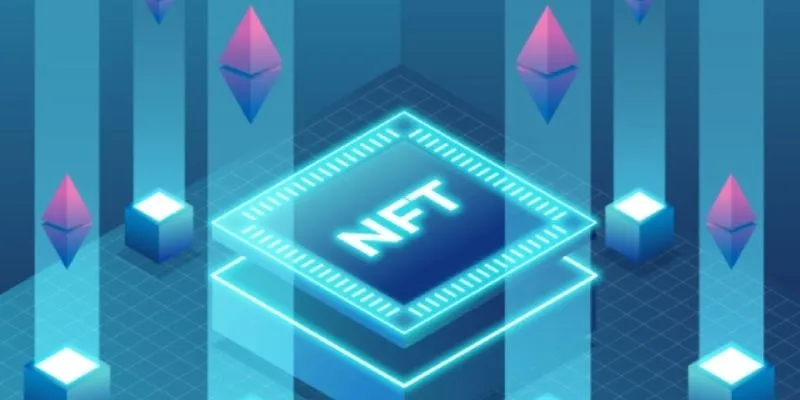As technology advances, every industry is experiencing significant transformations. Innovative concepts such as Web 3.0, Cryptocurrency, and the Metaverse platform development company will alter the future of gaming, entertainment, education, workshopping, and more. The effects of these technological advances can be felt in every aspect of our lives. They are continuing to change and alter how we interact with our world.
In October 2021, a major incident occurred when Facebook, one of the largest technology companies, changed its brand name to Meta. This was a significant change in social media's perceptions, as well as the emergence of real-world 3D digital worlds. Thus, the idea of the metaverse is coming into the limelight.
According to Gartner, in 2026, about 25% of the population will consume at least one hour daily doing things such as shopping, working and learning, socializing, and enjoying. The metaverse's buzz could bring about some interesting, innovative business ideas. In this metaverse, it became the primary focus of the technology industry's discussion
Understanding NFTs and Their Significance in the Gaming Industry
Before we examine the role of NFTs in-game metaverse app development, it's essential to know precisely what NFTs are and why they are important in gaming.
Non-fungible tokens, also known as non-fungible coins, are unique digital assets that prove the owner's identity or authenticity for virtual objects or collectibles. NFTs are non-dissolvable and can't be exchanged for another cryptocurrency, like Bitcoin or Ethereum, that is fungible and may be exchanged one-to-one.
The importance of NFTs is their capacity to give ownership and the ability to create scarcity for virtual assets. Traditional video game players usually spend money and time acquiring objects or collectibles in the game, but they do not actually control these items. The game's publisher is in charge of these assets and may restrict access or stop the game, making the assets ineffective.
With NFTs, players can fully possess the virtual asset. They are stored on blockchains, which are immutable and decentralized ledgers. This means that ownership of NFTs is not changed or canceled by an authority central to the system. Users can buy and sell NFTs safely and transparently, which allows them to control their virtual assets.
Metaverse NFT game development solutions are enormously influential in the gaming industry. They offer a whole new level of ownership and value for digital assets and open many possibilities for game designers and players.
Also Read: A Comprehensive Guide to Metaverse Software Development in 2024
Critical Aspects of Blockchain and Metaverse-based Gaming
Blockchain-focused metaverses can distinguish themselves from earlier Metaverse app development in the following ways.
Decentralized Ecosystem
While centralized corporations have owned and governed virtual worlds for some time, Blockchain metaverses are based on decentralization. Certain or all metaverse game elements are based on blockchain technology.
In the end, the Metaverse Blockchain developers diverge from the current game structure of the mainstream corporation and strategies for capturing value.
The unique nature of blockchain games offers participants more equal participation choices. Additionally, it implies that people who are part of the metaverse also share ownership in the universe. Even if the blockchain's creators abandoned the idea, the game could be around for the rest of the time.
Decentralized User Governance
Metaverses, similar to Decentraland, operate as Decentralized autonomous organizations (DAOs) and use tokens for governance to put the players in control of the game's fate. They allow them to decide on changes and upgrades. As a result, metaverses could grow into complete communities with economies and democratic governments, turning into more than just a place to play crypto games.
NFT-powered Verifiable Provenance/Ownership
Cryptocurrency tokens, including non-fungible tokens, are game assets for blockchain-based metaverse gaming (NFTs). Purchases and achievements in gaming environments are precious to gamers. Utilizing NFTs provides much-needed transparency as well as access to the asset market comparable to game-related items. Metaverse Blockchain developers like tokens and assets can easily verify the authenticity of game-generated content created by players and NFT gaming assets, as every NFT is distinct.
Improved Economic Worth in the Real World
Metaverse economies connect to the larger crypto-economy in real-time as they utilize digital currency (NFTs) and blockchain technology. Metaverse currency holders, avatar skins, avatars, or digital real estate can trade these with DEXs and NFT marketplaces to trade for real-world value.
The Main Types of Metaverse Gaming
Various kinds of gaming have been under Metaverse app development and gaming convergence, offering unique experiences and catering to a broad gaming audience. Let's analyze the significant genres of Metaverse NFT game development solutions.
Arcade games
Although they are rooted in old-fashioned gaming styles, the games have been reinvented to fit the world of metaphysics. They provide simple but engaging gameplay and are now played in large digital spaces where players from all over the world can compete or work together.
Action games and RPG games
The genres have exploded within the symbolic realm, providing elaborate narratives and complex world-building. Game players can embark on epic journeys, usually that span multiple virtual worlds, and have the potential to create real-world economic interactions using in-game assets and currencies.
Racing games
Metaverse racing is a departure from traditional tracks and automobiles and creates a brand-new, engaging environment for this kind of entertainment. Imagine racing across strange terrains, through wormholes, as well as between different game universes, with real-world participants placing bets and buying virtual items.
Casino & card games
The virtual gambling world has grown exponentially in the metaverse, providing a new dimension of enjoyment for virtual casinos. Online players can play in sprawling casinos, take part in high-stakes games of cards, or even design their gambling venues while engaging with an international community.
Games of sports
Beyond simple virtual games, metaverse sports permit players to form teams, design arenas, and even invent new sports. They blend the virtual and the physical, combining tournaments and live events that allow players to participate in intense championships and training sessions.
Adventure games
Adventure games are narrative-driven games that typically combine elements from other genres to enhance their immersiveness and a touch of fantasy. In adventure games, players travel through vast virtual worlds, collect assets, work on challenges, and participate in narrative-driven adventures.
Exploring the Potential of NFTs for Unique In-Game Assets
Another significant role NFTs play in metaverse app development is the study of their potential as unique game assets.
Typically, the game's publisher controls and owns the assets used in games. Players can spend a tremendous amount of time and money acquiring these assets. However, they don't actually have control or ownership over these assets. This makes it difficult for players to make money off their assets or move their assets between games.
NFTs alter how we think about this because they allow players to manage and control their in-game assets. Metaverse NFT game development solutions can design NFTs for exclusive and beneficial items, and players can purchase or sell the items in different marketplaces. This creates a new way for gamers to earn money from their gaming assets and establishes an alternative market for game assets.
NFTs also add the concept of rarity and scarcity to game assets, making them more valuable and sought-after. Players can gather rare NFTs and display their collection to other players, earning them the requisite respect and prestige for their gameplay.
Its potential for NFTs for exclusive in-game assets is enormous. It lets players own their own investments, introduces the concept of rarity and scarcity to virtual items, and provides an active secondary market for in-game assets.
Monetizing Metaverse Games using NFTs
The most thrilling feature associated with NFTs for metaverse games is their potential to make money.
Metaverse Blockchain developers create virtual assets with real-world value. Players can buy or sell the NFTs on different markets, allowing them to make money from their gaming investment and possibly make real money.
NFTs provide a fresh income opportunity for Metaverse Blockchain developers. They can gain royalties from the sale of NFTs within their games. They can also develop limited editions of virtual assets that can be offered for a price.
Metaverse NFT game development solutions of models that allow players to earn money or NFTs or coins by playing the game. This encourages players to spend longer playing the game and establishes a synergistic relationship between the game's creator and the player community.
NFTs present an exciting opportunity to monetize metaverse games. They let players earn money from game-related investments, create an additional revenue stream that game creators can earn, and encourage play-to-earn strategies that benefit gamers and the game development ecosystem.
Read About: The Metaverse is the Future of Digital Connection
Future Opportunities for NFTs in Metaverse Game Development

The future of Metaverse NFT game development solutions tool is filled with possibilities.
The technology and the infrastructure supporting NFTs continue to develop and improve; we could witness more creative applications and use cases within the game industry. Future possibilities that could benefit Metaverse NFT game development solutions are:
Virtual land ownership NFTs let players buy and sell real estate in games that use the metaverse, creating a brand-new marketplace for virtual property.
Collaboration across games: NFTs can help facilitate cross-game collaborations, in which the assets of one game can be utilized in another match, resulting in unique games and collaborations among various game communities.
Virtual identity and personalization: NFTs can allow players to create and modify their virtual identities, including avatars, skins, and other cosmetic items. Virtual identities are distinctive and tradeable, adding a layer of personalization and self-expression to gaming.
Experiences and virtual events: NFTs could serve as virtual access tickets to events or event tickets that allow players to access exclusive gaming events or experiences. This would create a sense of exclusivity and excitement in gamers.
These are only some of the potential future applications for NFTs in metaverse app development. As technology evolves and improves, we will discover more exciting and engaging use cases, which will determine our future gaming.
The Future Of Metaverse Gaming And Cryptocurrencies
In the future, as technology and systems that support the Metaverse NFT game development solutions develop, the lines between the physical and digital world will continue to blur. Cryptocurrencies will always play an essential role in developing the decentralization of economies, thereby opening up possibilities for new innovation and business models.
Large technological companies invest massively in the creation of immersive and interconnected virtual worlds and suggest that the metaverse will become a major element of our lives online. Blockchain-based gaming, decentralized apps (dApps), and NFTs are the initial steps in a brand-new digital revolution that will alter our relationship with virtual environments.
Conclusion
We are witnessing the first phases of a new virtual world with a dominant metaverse app development and blockchain-powered overlays. The best NFT or web3 marketing agency will help make the entire Metaverse app development journey more accessible!
As technology improves and advances, we will soon be connected in a completely immersive metaverse where assets and processes, both physical and digital, can be transacted through inexpensive NFTs. This is a huge opportunity for entertainment, commerce, and finance in the near future.
More excitingly, technology will allow us to keep in touch with families, friends, and colleagues while maintaining our privacy and autonomy. This is something everybody can benefit from.
There is still much to be accomplished before the bright future is realized, but progress is becoming more and more frequent, which helps us realize the potential of this technology.
If suitable applications are implemented, 2024 will be a year that genuinely transforms, bringing together virtual worlds and blockchain-enabled NFTs that provide real-world value to daily life in every area, including media, business, entertainment, and healthcare.














Share this blog